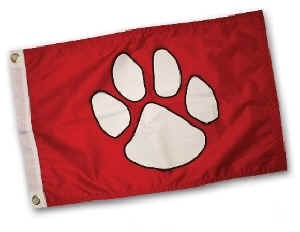Animal Nations
An Animal Rights Article from All-Creatures.org
FROM Jill Howard Church,
ASI Animals and
Society Institute
May 2009
We need another and a wiser and perhaps a more mystical concept of
animals…. They are not brethren, they are not underlings; they are other
nations, caught with ourselves in the net of life and time, fellow prisoners
of the splendor and travail of the earth.
– Henry Beston

The death of the sealing industry in Canada is lingering even longer than
that of its many helpless victims, and politicians on different sides of the
Atlantic get both the credit and the blame. Word finally came on May 5 that
the European Parliament had voted to ban the importation of Canadian seal
products, effectively shutting the market for this barbaric “hunt.” The ban
passed with 92 percent support, an overdue but much welcome victory for
animal activists who have been trying to stop this slaughter for decades.
But even with the blood-red writing on the wall, the Canadian Parliament
refuses to admit defeat. Just a day after the European ban was announced,
the Canadian House of Commons unanimously supported a motion that would have
required the Canadian Olympic team to have some sort of seal products
incorporated into their uniforms during the Winter Games in Vancouver next
year. Thankfully, the Canadian Olympic Committee rejected the idea, saying
the athletes didn’t want politics injected into the Games.
Part of me understands that position, since team members are united by
nationality and not necessarily ideology. The Olympics are meant to be a
place where athletes come together for competition and camaraderie, period.
But there have been gestures related to human rights and civil rights at
past Olympic Games, so why not animal rights as well? After all, we are all
animals, first and foremost. However, as one of my vintage campaign buttons
reads, “Humans aren’t the only species on earth – we just act like it.”
The thousands of nonhuman species of the world have no political
nationality, and no votes other than the ones some of us cast on their
behalf. But their well-being falls under the jurisdiction of many different
governments that can be corrupt, callous or both. They are, as Henry Beston
noted, “other nations” with whom we share the planet. Sadly, “sharing” is
often not the case.
We Americans are good at righteous outrage but conveniently overlook our own
transgressions, such as shooting wolves in Alaska and experimenting on
chimpanzees. When we think of the atrocities that other countries perpetuate
against animals, notable images come to mind: Japanese harpooning whales,
Spaniards stabbing bulls, Koreans cooking dogs, Rwandans eating gorillas,
and of course, Canadians clubbing seals. It’s ironic that the debate over
the seals has government officials pointing fingers across the Atlantic in a
warped contest to decide which country sanctions the worst animal abuse.
But as our parents told us when we copied our friends’ bad behavior, just
because someone else does it, doesn’t mean you should. So instead of
deciding which country has the more hideous habits, perhaps the world’s
leaders ought to take the high road for once and collectively decide that
the worst of the abuses need to stop now, across the board and across the
borders. No more whaling. No more bush meat. No more seal bashing. No more
treating wildlife (especially threatened and endangered ones) like cash
crops.
The Animals and Society Institute’s Animals' Platform, although designed for
U.S. policy, reflects the principals of humane treatment toward wild and
domestic animals that could apply across the globe, and in some cases
already do. We know the British often lead the way, but several other
countries, such as Austria, have been quite progressive lately in
establishing national policies that better respect animal nations. However,
as the stubborness in Canada shows, it will take a lot of work in many a
congress, legislature and parliament for the world’s ethical standards to
rise collectively. Whatever flag we fly, it is up to us, as citizens of the
planet, to create a world with more splendor than travail.
Jill Howard Church is an Atlanta-based freelance writer and editor who specializes in animal issues. She is currently Managing Editor of AV Magazine for the American Anti-Vivisection Society (AAVS) and the President of GAveg, The Vegetarian Society of Georgia.
Return to Animal Rights Articles






